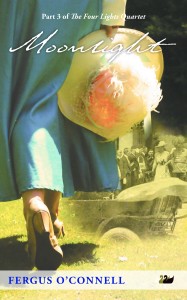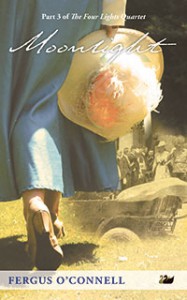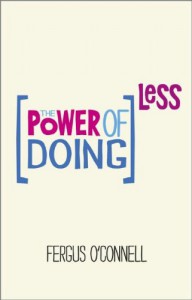News: Aug 2013
On ‘The Marian Finucane Show’
http://www.rte.ie/radio1/podcast/podcast_marianfinucane.xml. I’m talking about The Power of Doing Less.
Moonlight: Part 3 of ‘The Four Lights’ quartet

Is now available for pre-order
Summer, 1914. Clara, a passionate young London wife and the mother of two small girls, is married to Henry, a manager at an insurance company, but the marriage is not in good shape. Both of them have, in their own ways, given up on it.
As the countdown to WWI begins in the capitals of Europe and war is declared, Clara discovers Henry is having an affair with a woman at work. Clara too finds herself drawn to another man, James, a divorced Foreign Office worker, and must fight against both the conventions of the time and her own conscience as they fall in love. But when Henry and James enlist, Clara must begin the long vigil, waiting to see which, if either of them, will return from the fighting.
The Power of Doing Less – for goalkeepers
THE GOALKEEPER THAT STANDS STILL – FROM THE POWER OF DOING LESS
Economist, Ofer Azar knows all about doing less. Recently he and some colleagues in Israel published a study on goalkeepers [6]. They watched hours of archival footage and noticed that goalkeepers save substantially more penalty kicks when they stay in the centre of the goal rather than when they jump to the left or right. Yet paradoxically, in 93.7 per cent of penalty situations, keepers chose to jump rather than stay in the centre.
In fact, analysis of 286 penalty kicks taken in elite matches around the world showed that keepers saved 33.3 per cent of penalties when they stayed in the centre, compared with just 12.6 per cent of kicks when they jumped right and 14.2 per cent when they jumped left.
Or to put it another way, doing nothing would have achieved a far better result than doing something.
But notice too how hard it is to do nothing. Imagine if you were that goalkeeper and you stood stock still while the penalty taker rocketed the ball into the top corner. Imagine the abuse that would be heaped upon you by your teammates and by the fans. Imagine the embarrassment and guilt you would feel. Imagine trying to explain in an after match press conference that the reason you stood still was that statistically, you were doing the best thing. It’s like we would rather do something – anything – and be seen to fail rather then do nothing, even though we know it might be the better thing to do.
On the radio
Listen to an interview with George Hook about ‘The Power of Doing Less’ . [From 7:00 minutes]
The Power of Doing Less
This book will show you why that time management course you did or book you bought was never really going to work. It is built around one startlingly simple idea – that we will never get everything done and that the mad busyness of the modern world is just that – mad!
The book is about having a life. It says that we all have far more to do than we’re ever going to have time to do it – even if we had several lifetimes. So rather than trying to work crazy hours in a vain attempt to get everything done, we should not do lots of things and just focus on the stuff that really matters.
Moonlight

Is now available for pre-order
Summer, 1914. Clara, a passionate young London wife and the mother of two small girls, is married to Henry, a manager at an insurance company, but the marriage is not in good shape. Both of them have, in their own ways, given up on it.
As the countdown to WWI begins in the capitals of Europe and war is declared, Clara discovers Henry is having an affair with a woman at work. Clara too finds herself drawn to another man, James, a divorced Foreign Office worker, and must fight against both the conventions of the time and her own conscience as they fall in love. But when Henry and James enlist, Clara must begin the long vigil, waiting to see which, if either of them, will return from the fighting.

![photo[23]](http://fergusoconnell.com/wp-content/uploads/2013/08/photo23-300x225.jpg)
